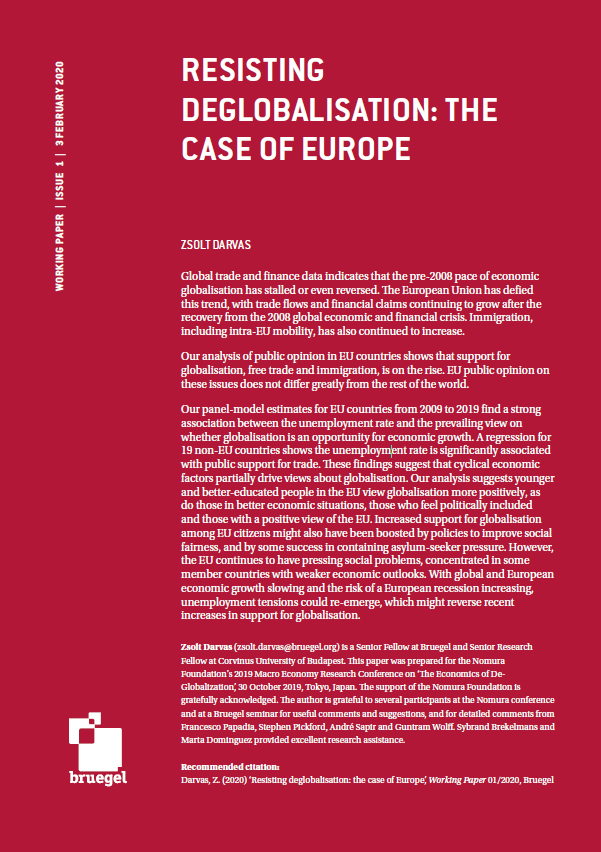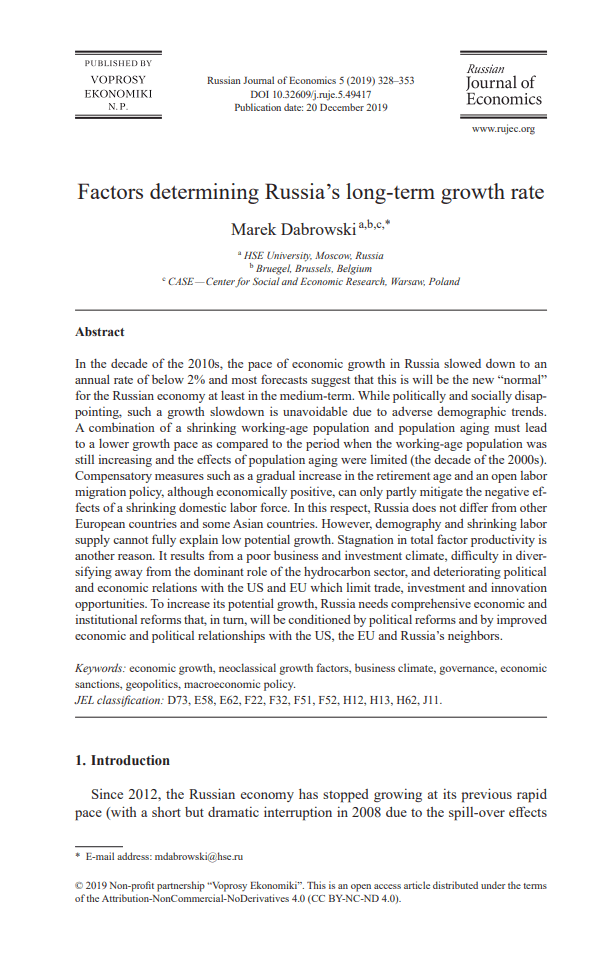Opinion

Reading tea leaves from China’s two sessions: Large monetary and fiscal stimulus and still no growth guarantee
The announcement of a large stimulus without a growth target indicates that China’s recovery is far from complete.
Opinion

The announcement of a large stimulus without a growth target indicates that China’s recovery is far from complete.
Blog Post


The implementation of a Derivative Market Programme could reaffirm the ECB’s credibility and strong commitment to price stability.
Working Paper

Global trade and finance data indicates that the pre-2008 pace of economic globalisation has stalled or even reversed. The European Union has defied this trend, with trade flows and financial claims continuing to grow after the recovery from the 2008 global economic and financial crisis. Immigration, including intra-EU mobility, has also continued to increase.
Blog Post

DSA applies to crisis countries only, but an early warning system identifying vulnerabilities is relevant for all countries. A more general, less stringent, debt vulnerabilities analysis (DVA) could be used to assess countries’ debt management policies and identify vulnerabilities, without leading immediately to policy consequences. A more general framework could also incorporate political risks that are significant determinants of debt dynamics
External Publication

This paper’s main conclusion is that Russia’s economy cannot grow at the pace recorded in the early and mid-2000s because of the different external environment, the different stage of development and serious demographic headwinds.
Opinion


The most concerning aspect for the Chinese economy will still be to hold up domestic demand. The rapidly rising household debt will put further breaks of the households' ability to purchase durable goods
Past Event

Are large differences in the resilience of individual economies related to differences in the quality of country-level institutions that shape the absorption and response to these shocks? At this event we'll discuss the evolution of labour markets, and the role of institutional design and good process.
Opinion

The performance of Chinese banks has been resilient so far, despite decelerating growth. While the performance of large banks remained steady, the rebound came from small banks. Why have small banks rebounded and is the rebound sustainable?
Past Event

Russia’s convergence to advanced economy income levels has stalled. Long-term growth prospects are still obstructed by sluggish productivity growth, low capital accumulation and shrinking labour inputs. The new government has articulated a set of ambitious policy objectives for the next six years. But are additional reforms necessary to further boost productivity and investments in line with government targets?
Blog Post

The quarterly growth rate of the euro area in Q1 2019 was 0.4% (1.5% annualized), considerably higher than the low growth rates of the previous two quarters. This blog reviews the reaction to the release of these numbers and the discussion they have triggered about the euro area’s economic challenges.
Blog Post

Under a set of assumptions, this post concludes that UK real income and investment would have been 4% and 6% larger respectively had it not been for the shock of the Brexit referendum result. With somewhat audacious assumptions, the damages already incurred can be scaled up to guess the negative macroeconomic consequence of each of the three possible Brexit outcomes: no-deal, deal or no Brexit.
Blog Post

In the highly interdependent modern world, a country’s economy and its foreign policy are strongly linked. A country’s foreign-policy ambitions should correspond to its economic potential, but Russia’s over-ambitious foreign ventures have exacerbated the negative effects of the numerous economic headwinds it faces.